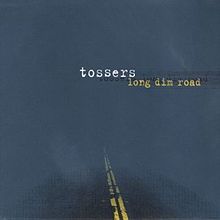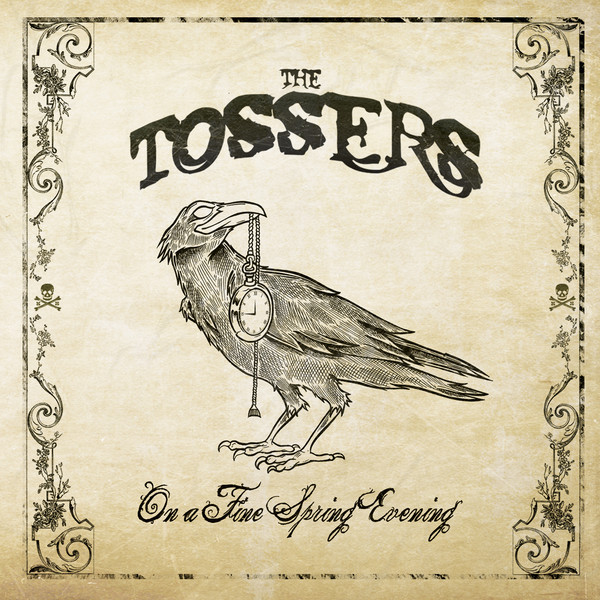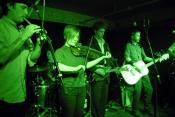Author Tossers
The Ballad of N.A.T.O.

You say you’re telling me right now of how you think that it should be
(Continues)
(Continues)
Contributed by Dq82 2017/7/21 - 21:21
Hunger Strike/Harmony

2008
On A Fine Spring Evening
Canzone dei Tossers che parla di Bobby Sands e della sua morte per fame dopo 66 giorni di sciopero. Non sono riuscito a trovare se il recitativo sia uno scritto di Sands. Anche il titolo dell'album richiama la morte di Bobby Sands, morto il 5 maggio.
On A Fine Spring Evening
Canzone dei Tossers che parla di Bobby Sands e della sua morte per fame dopo 66 giorni di sciopero. Non sono riuscito a trovare se il recitativo sia uno scritto di Sands. Anche il titolo dell'album richiama la morte di Bobby Sands, morto il 5 maggio.
When I was a child I would lie in the green
(Continues)
(Continues)
Contributed by Dq82 2017/7/21 - 21:12
1969

2017
Smash the windows
1969: Fervono movimenti per i diritti civili in Irlanda del Nord (come il Nicra, Norther Ireland Civil Right Association, o il People’s Democracy), che denunciano le disparità tra le due comunità nordirlandesi. La tensione sale alle stelle in corrispondenza della rivolta cattolica a Derry, scoppiata in opposizione a una marcia unionista che aveva attraversato il Bogside, storico quartiere cattolico della città. I disordini e le violenze tra le due comunità si estendono anche a Belfast, dove i britannici decidono di costruire un muro - ancora oggi esistente - per separare il quartiere cattolico da quello protestante, nell’ovest della città. È l’inizio dei cosiddetti ‘Troubles’ (letteralmente: disordini), che vedranno da questo momento in avanti il sistematico scoppio di violenze tra le due fazioni.
Per approfondimenti irlandaonline.com
Smash the windows
1969: Fervono movimenti per i diritti civili in Irlanda del Nord (come il Nicra, Norther Ireland Civil Right Association, o il People’s Democracy), che denunciano le disparità tra le due comunità nordirlandesi. La tensione sale alle stelle in corrispondenza della rivolta cattolica a Derry, scoppiata in opposizione a una marcia unionista che aveva attraversato il Bogside, storico quartiere cattolico della città. I disordini e le violenze tra le due comunità si estendono anche a Belfast, dove i britannici decidono di costruire un muro - ancora oggi esistente - per separare il quartiere cattolico da quello protestante, nell’ovest della città. È l’inizio dei cosiddetti ‘Troubles’ (letteralmente: disordini), che vedranno da questo momento in avanti il sistematico scoppio di violenze tra le due fazioni.
Per approfondimenti irlandaonline.com
Long ago, far away, far across the sea
(Continues)
(Continues)
Contributed by Dq82 2017/7/21 - 20:57
Song Itineraries:
Conflicts in Ireland
Erin Go Bragh

Interpreti Wolfe Tones, The Tossers
Éirinn go Brách si traduce come “Irlanda per sempre” sinonimo dell’identità irlandese. In realtà, non si conosce la precisa origine della parola bragh, in quanto essa non esiste nel vocabolario irlandese: si presume che chi per primo la utilizzò abbia semplicemente sbagliato lo spelling. Bragh, infatti, si può ricondurre sia a breá, che significa “bello”, “splendido”, sia a brách, la cui traduzione è appunto “per sempre”. È tradizionalmente una frase utilizzata come motto del movimento Repubblicano, e si ritrova infatti sulla sua bandiera. Con lo stesso titolo sono state chiamate canzoni diverse scritte non solo in Irlanda ma anche in Scozia. Questa è la canzone scritta nel 1920 da Peadar Kearney
LA RIVOLTA DI PASQUA 1916
La canzone si riferisce alla rivolta di pasqua del 1916 (lunedì 24 aprile) (Easter Rising) e ne commemora gli eroi.
Nella Pasqua... (Continues)
Éirinn go Brách si traduce come “Irlanda per sempre” sinonimo dell’identità irlandese. In realtà, non si conosce la precisa origine della parola bragh, in quanto essa non esiste nel vocabolario irlandese: si presume che chi per primo la utilizzò abbia semplicemente sbagliato lo spelling. Bragh, infatti, si può ricondurre sia a breá, che significa “bello”, “splendido”, sia a brách, la cui traduzione è appunto “per sempre”. È tradizionalmente una frase utilizzata come motto del movimento Repubblicano, e si ritrova infatti sulla sua bandiera. Con lo stesso titolo sono state chiamate canzoni diverse scritte non solo in Irlanda ma anche in Scozia. Questa è la canzone scritta nel 1920 da Peadar Kearney
LA RIVOLTA DI PASQUA 1916
La canzone si riferisce alla rivolta di pasqua del 1916 (lunedì 24 aprile) (Easter Rising) e ne commemora gli eroi.
Nella Pasqua... (Continues)
I’ll sing you a song of a row in the town,
(Continues)
(Continues)
Contributed by Cattia Salto 2016/8/26 - 21:01
Song Itineraries:
Conflicts in Ireland
Poor Paddy on the Railway
Anonymous
This song has been performed by numerous musicians and singers, including Ewan MacColl, Authority Zero, The Dubliners, The Tossers, The Kelly Family and The Pogues.
"Poor Paddy Works on the Railway" is a popular Irish folk and American folk song. Historically, it was often sung as a sea chanty. The song portrays an Irish worker working on a railroad.
There are numerous titles of the song including, "Pat Works on the Railway" and "Paddy on the Railway". "Paddy Works on the Erie" is another version of the song.
In The American Songbag, the writer Carl Sandburg claims that the song has been published in sheet music since the early 1850s. The earliest confirmed date of publication is from 1864 from a manuscript magazine. Ernest Bourne recorded the first version, released in 1941, by Alan Lomax for the Library of Congress in 1938.
"Paddy on the Railway" is attested as a chanty in the earliest... (Continues)
"Poor Paddy Works on the Railway" is a popular Irish folk and American folk song. Historically, it was often sung as a sea chanty. The song portrays an Irish worker working on a railroad.
There are numerous titles of the song including, "Pat Works on the Railway" and "Paddy on the Railway". "Paddy Works on the Erie" is another version of the song.
In The American Songbag, the writer Carl Sandburg claims that the song has been published in sheet music since the early 1850s. The earliest confirmed date of publication is from 1864 from a manuscript magazine. Ernest Bourne recorded the first version, released in 1941, by Alan Lomax for the Library of Congress in 1938.
"Paddy on the Railway" is attested as a chanty in the earliest... (Continues)
In eighteen hundred and forty one
(Continues)
(Continues)
Contributed by DoNQuijote82 2013/12/10 - 12:37
Song Itineraries:
The War of Labour: Emigration, Immigration, Exploitation, Slavery
Doctrines Outdated

2000
Long Dim Road
Long Dim Road
Our differences far behind us
(Continues)
(Continues)
Contributed by giorgio 2008/11/29 - 13:01
×
![]()

Long Dim Road